by Michael Eggleston* (Advanced Biofuels USA) As Europe’s revised Renewable Energy Directive (REDII) plans are set into motion, disagreements about how biofuels are treated in the newly proposed legislation have sparked concerns that Paris’ target of holding global warming below two degrees (2DS) won’t be achieved.
Curious to get an insider’s view into these discussions I traveled to Brussels, Belgium where clarity among biofuel producers, policy makers and thought-leaders called for attention at the 8th Stakeholder Plenary Meeting of the European Technology and Innovation Platform Bioenergy.
Need to Cut Nearly ALL Greenhouse Gas Emissions by 2050
According to the sessions’ keynote speaker, Thomas B. Johansson, Professor emeritus at the International Institute for Industrial Environmental Economics, 2DS means that nearly all greenhouse gas (GHG) emissions must be cut by 2050.
Out of all the areas that need to reduce their carbon missions, the transportation sector is the most challenging, announced Adam Brown, Technical Coordinator of the International Energy Agency (IEA) Bioenergy Technology Cooperation Programme. According to the IEA’s most recent roadmap on delivering sustainable bioenergy, a transition needs to be made towards advanced biofuels in the transport sector over the long-term if Europe is to take its goals seriously, stated Brown.
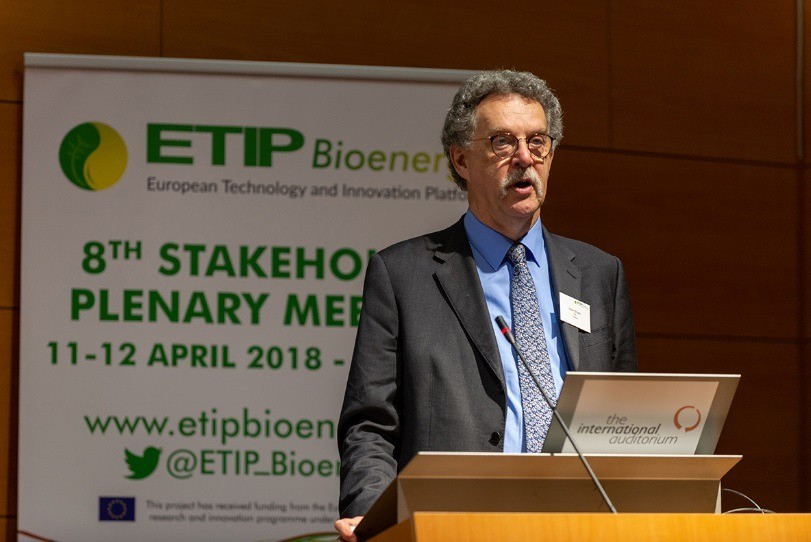 Adam Brown, Technical Coordinator of the International Energy Agency (IEA) Bioenergy Technology Cooperation Programme
Adam Brown, Technical Coordinator of the International Energy Agency (IEA) Bioenergy Technology Cooperation Programme
Conventional Biofuels and Advanced Biofuels Challenges
Highlighting this facet, the Directorate General for Research and Innovation at the European Commission (EC), Maria Georgiadou, asserted that after 2021 conventional biofuels will have a decreasing role in Europe to meet the 2DS. Only advanced biofuels deployed in heavy transport such as freight, marine and aviation are seen by the Commission as having a role in meeting this target. Her remarks reiterated the EC’s stance on RED II to initiate the phase-out of conventional biofuels by 2021 due to concerns over sustainability and indirect land-use change (ILUC).
Although advanced biofuels are seen by some to be the area of focus, to the Head of Biorefineries at the German Biomass Research Centre (DBFZ), Franziska Müller-Langer, they will not meet the expectations of becoming the immediate agent of change due to their inherent incapacity to meet consumer needs on a large scale. This issue of scaling up advanced feedstock processing technologies, also referred to as the ‘experience curve’, was the focal point of Müller-Langer’s reasoning aimed at pointing out the challenges advanced biofuels face financially.
Value of Outdated Indirect Land Use Change Data
Supporting DBFZ’s side was Ethanol Europe, represented by Sustainability Consultant Zoltán Szabó who stated there is no first vs. second generation debate but an issue of inefficient land-use. Many arguments Szabó expressed against the use of conventional biofuels are based on outdated ILUC data, ignoring the fact that ethanol producers, such as Ethanol Europe, have improved their agricultural efficiencies in recent years. If the contributions of conventional biofuels are ignored in discussions then surely debates will re-open regarding the efficacy of the newly proposed REDII in 2021, he suggested. However, as one of Europe’s largest advanced biofuel producers, Szabó concluded that advanced biofuels are not effective now and that the best chance they have is to be integrated into conventional biofuel plants.
Food Security, Sustainability Assessments and the "Agreeable Corridor"
As ‘old scars’ were reopened, Uwe Fritsche, Scientific Director at the International Institute for Sustainability Analysis and Strategy (IINAS), took the debate a step back stating that rather than attempting to measure ILUC, regulators should focus instead on ways to incentivize low risk ILUC feedstocks. There needs to be a common definition of what ‘food security’ means that will hold all stakeholders in the bio-economy accountable to the land that they use, no matter if it is for food, fuel or fiber, explained Fritsche. To ensure biofuels are to play any significant role towards meeting the 2DS, this ‘agreeable corridor’ must be decided upon, he concluded.
As pointed out in an earlier article written by Steve Bi for Advanced Biofuels USA, Brown disclosed in his presentation that the buy-down cost of all the advanced biofuel plants that would be needed to meet the International Energy Agency’s recommended 2030 target to keep on track with the 2DS is ‘just’ $100 billion, a measly 0.5% of the $200 trillion that the world happily spends every year on fossil fuel.
Stimulating Production of Advanced Biofuels: Quotas, FITs, Carbon Tax?
Although there was a clear consensus surrounding the market place’s conceived bias towards fossil-fuels, many disagreed about how advanced biofuels should be stimulated. Many debated that these fuels should be incentivized by either production quotas to be filled, feed-in tariffs (FITs) that select a preconceived technological ‘winner’ or a carbon tax that should set a framework for the market place’s activities.
When it comes to production quotas Müller-Langer spoke highly of their potential to convince investors to move forward with scaling up infrastructure from a preconceived target that is to be met. Johansson on the other hand did not agree with Müller-Langer’s argument since it requires unanimous trust amongst these investors that is fostered by a strong political will which, unfortunately, doesn’t exist in the European Union (EU).
Moving the discussion away from politics, Johansson stated that a FIT system would put the power in the hands of producers themselves who would be able to reinvest their savings on energy costs towards the development of more advanced biofuel plants.
 Uwe Fritsche (on left), Scientific Director at the International Institute for Sustainability Analysis and Strategy with Franziska Müller-Langer (on right)
Uwe Fritsche (on left), Scientific Director at the International Institute for Sustainability Analysis and Strategy with Franziska Müller-Langer (on right)
Skeptical about this idea, Brown commented that the issue with a FIT is that banks would charge a large amount of interest associated with the risk stemming from regulatory uncertainty surrounding REDII.
Agreeing with Brown was Hermann Penng-Buehrlen, Head of Project Management of e-fuels at Audi AG who declared a FIT system would be too costly for car manufactures to pay for when they could pay less with a reformed European carbon tax policy. For Audi AG, a reformed carbon tax policy should consider the life-cycle analysis (LCA) of at least a well-to-wheel approach, moving beyond the current legislative focus on tailpipe emissions.
Despite debating about how to make advanced biofuels cost effective, Johansson pointed out that the plenary’s discussions were sub optimally focused on the real issue. He claimed that overlooking the cost of failing to mitigate climate change, and ignoring both the need to develop cooperation with developing countries and the multiplying effect of the bioeconomy were left out of the meeting’s focus.
Although it is not quite clear how advanced biofuels will be brought to market, Chair of the ETIP Bioenergy Steering Committee, Patrik Klintbom concluded the session by announcing that the right environment for biofuels can only be created, as Fritsche mentioned, by developing an ‘agreeable corridor’ in which sustainable innovation is encouraged amongst all biofuel producers.
ETIP Bioenergy
Currently, ETIP Bioenergy is delivering an important contribution to the implementation of the Strategic Energy Technology Plan Action 8: renewable fuels and bioenergy. An implementation plan, expected by the first half of 2018, will contain concrete R&I activities, and will propose relevant funding opportunities for their realization. Timo Ritonummi, Ministry of Economic Affairs and Employment Finland, chair of the Temporary Working Group for the Implementation Plan, presented the current state of the ongoing work.
The slides of the event together with a multimedia gallery are available here.
 Maria Georgiadou (on left) with Patrik Klintbom (on right), Chair of the ETIP Bioenergy Steering Committee
Maria Georgiadou (on left) with Patrik Klintbom (on right), Chair of the ETIP Bioenergy Steering Committee
ETIP Bioenergy is an industry-led stakeholder platform that brings together relevant actors from academia, industry, and civil society, engaged in the development of sustainable bioenergy and competitive biofuel technologies. One major task of ETIP Bioenergy is to address the technical and economic barriers to the further development and accelerated commercial deployment of bioenergy technologies for the widespread sustainable exploitation of biomass resources. As an industry-led stakeholder forum, ETIP Bioenergy has the role to consolidate the view of the biofuels and bioenergy industry in Europe.
* Michael Eggleston is an aspiring policymaker studying interdisciplinary & intercultural communication with the University of Rhode Island’s International Engineering Program. He is spending a semester abroad at the Technische Universität Darmstadt in Darmstadt, Germany and will be reporting on and representing Advanced Biofuels USA at international conferences surrounding Europe’s energy transition.
Photos courtesy of ETIP Bioenergy
ETIP Bioenergy Workshop Emerging Technologies (ETIP Bioenergy)
Nearly 55,000 articles in our online library!
Use the categories and tags listed below to access the nearly 50,000 articles indexed on this website.
Advanced Biofuels USA Policy Statements and Handouts!
- For Kids: Carbon Cycle Puzzle Page
- Why Ethanol? Why E85?
- Just A Minute 3-5 Minute Educational Videos
- 30/30 Online Presentations
- “Disappearing” Carbon Tax for Non-Renewable Fuels
- What’s the Difference between Biodiesel and Renewable (Green) Diesel? 2020 revision
- How to De-Fossilize Your Fleet: Suggestions for Fleet Managers Working on Sustainability Programs
- New Engine Technologies Could Produce Similar Mileage for All Ethanol Fuel Mixtures
- Action Plan for a Sustainable Advanced Biofuel Economy
- The Interaction of the Clean Air Act, California’s CAA Waiver, Corporate Average Fuel Economy Standards, Renewable Fuel Standards and California’s Low Carbon Fuel Standard
- Latest Data on Fuel Mileage and GHG Benefits of E30
- What Can I Do?
Donate
DonateARCHIVES
- February 2026
- January 2026
- December 2025
- November 2025
- October 2025
- September 2025
- August 2025
- July 2025
- June 2025
- May 2025
- April 2025
- March 2025
- February 2025
- January 2025
- December 2024
- November 2024
- October 2024
- September 2024
- August 2024
- July 2024
- June 2024
- May 2024
- April 2024
- March 2024
- February 2024
- January 2024
- December 2023
- November 2023
- October 2023
- September 2023
- August 2023
- July 2023
- June 2023
- May 2023
- April 2023
- March 2023
- February 2023
- January 2023
- December 2022
- November 2022
- October 2022
- September 2022
- August 2022
- July 2022
- June 2022
- May 2022
- April 2022
- March 2022
- February 2022
- January 2022
- December 2021
- November 2021
- October 2021
- September 2021
- August 2021
- July 2021
- June 2021
- May 2021
- April 2021
- March 2021
- February 2021
- January 2021
- December 2020
- November 2020
- October 2020
- September 2020
- August 2020
- July 2020
- June 2020
- May 2020
- April 2020
- March 2020
- February 2020
- January 2020
- December 2019
- November 2019
- October 2019
- September 2019
- August 2019
- July 2019
- June 2019
- May 2019
- April 2019
- March 2019
- February 2019
- January 2019
- December 2018
- November 2018
- October 2018
- September 2018
- August 2018
- July 2018
- June 2018
- May 2018
- April 2018
- March 2018
- February 2018
- January 2018
- December 2017
- November 2017
- October 2017
- September 2017
- August 2017
- July 2017
- June 2017
- May 2017
- April 2017
- March 2017
- February 2017
- January 2017
- December 2016
- November 2016
- October 2016
- September 2016
- August 2016
- July 2016
- June 2016
- May 2016
- April 2016
- March 2016
- February 2016
- January 2016
- December 2015
- November 2015
- October 2015
- September 2015
- August 2015
- July 2015
- June 2015
- May 2015
- April 2015
- March 2015
- February 2015
- January 2015
- December 2014
- November 2014
- October 2014
- September 2014
- August 2014
- July 2014
- June 2014
- May 2014
- April 2014
- March 2014
- February 2014
- January 2014
- December 2013
- November 2013
- October 2013
- September 2013
- August 2013
- July 2013
- June 2013
- May 2013
- April 2013
- March 2013
- February 2013
- January 2013
- December 2012
- November 2012
- October 2012
- September 2012
- August 2012
- July 2012
- June 2012
- May 2012
- April 2012
- March 2012
- February 2012
- January 2012
- December 2011
- November 2011
- October 2011
- September 2011
- August 2011
- July 2011
- June 2011
- May 2011
- April 2011
- March 2011
- February 2011
- January 2011
- December 2010
- November 2010
- October 2010
- September 2010
- August 2010
- July 2010
- June 2010
- May 2010
- April 2010
- March 2010
- February 2010
- January 2010
- December 2009
- November 2009
- October 2009
- September 2009
- August 2009
- July 2009
- June 2009
- May 2009
- April 2009
- March 2009
- February 2009
- January 2009
- December 2008
- November 2008
- October 2008
- September 2008
- August 2008
- July 2008
- June 2008
- May 2008
- April 2008
- March 2008
- February 2008
- January 2008
- December 2007
- November 2007
- October 2007
- September 2007
- August 2007
- June 2007
- February 2007
- January 2007
- October 2006
- April 2006
- January 2006
- April 2005
- December 2004
- November 2004
- December 1987
CATEGORIES
- About Us
- Advanced Biofuels Call to Action
- Aviation Fuel/Sustainable Aviation Fuel (SAF)
- BioChemicals/Renewable Chemicals
- BioRefineries/Renewable Fuel Production
- Business News/Analysis
- Cooking Fuel
- Education
- 30/30 Online Presentations
- Competitions, Contests
- Earth Day 2021
- Earth Day 2022
- Earth Day 2023
- Earth Day 2024
- Earth Day 2025
- Executive Training
- Featured Study Programs
- Instagram TikTok Short Videos
- Internships
- Just a Minute
- K-12 Activities
- Mechanics training
- Online Courses
- Podcasts
- Scholarships/Fellowships
- Teacher Resources
- Technical Training
- Technician Training
- University/College Programs
- Events
- Coming Events
- Completed Events
- More Coming Events
- Requests for Speakers, Presentations, Posters
- Requests for Speakers, Presentations, Posters Completed
- Webinars/Online
- Webinars/Online Completed; often available on-demand
- Federal Agency/Executive Branch
- Agency for International Development (USAID)
- Agriculture (USDA)
- Commerce Department
- Commodity Futures Trading Commission
- Congressional Budget Office
- Defense (DOD)
- Air Force
- Army
- DARPA (Defense Advance Research Projects Agency)
- Defense Logistics Agency
- Marines
- Navy
- Education Department
- Energy (DOE)
- Environmental Protection Agency
- Federal Energy Regulatory Commission (FERC)
- Federal Reserve System
- Federal Trade Commission
- Food and Drug Administration
- General Services Administration
- Government Accountability Office (GAO)
- Health and Human Services (HHS)
- Homeland Security
- Housing and Urban Development (HUD)
- Interior Department
- International Trade Commission
- Joint Office of Energy and Transportation
- Justice (DOJ)
- Labor Department
- National Academies of Sciences Engineering Medicine
- National Aeronautics and Space Administration
- National Oceanic and Atmospheric Administration
- National Research Council
- National Science Foundation
- National Transportation Safety Board (NTSB)
- Occupational Safety and Health Administration
- Overseas Private Investment Corporation
- Patent and Trademark Office
- Securities and Exchange Commission
- State Department
- Surface Transportation Board
- Transportation (DOT)
- Federal Aviation Administration
- National Highway Traffic Safety Administration (NHTSA)
- Pipeline and Hazardous Materials Safety Admin (PHMSA)
- Treasury Department
- U.S. Trade Representative (USTR)
- White House
- Federal Legislation
- Federal Litigation
- Federal Regulation
- Feedstocks
- Agriculture/Food Processing Residues nonfield crop
- Alcohol/Ethanol/Isobutanol
- Algae/Other Aquatic Organisms/Seaweed
- Atmosphere
- Carbon Dioxide (CO2)
- Field/Orchard/Plantation Crops/Residues
- Forestry/Wood/Residues/Waste
- hydrogen
- Manure
- Methane/Biogas
- methanol/bio-/renewable methanol
- Not Agriculture
- RFNBO (Renewable Fuels of Non-Biological Origin)
- Seawater
- Sugars
- water
- Funding/Financing/Investing
- grants
- Green Jobs
- Green Racing
- Health Concerns/Benefits
- Heating Oil/Fuel
- History of Advanced Biofuels
- Infrastructure
- Aggregation
- Biofuels Engine Design
- Biorefinery/Fuel Production Infrastructure
- Carbon Capture/Storage/Use
- certification
- Deliver Dispense
- Farming/Growing
- Precursors/Biointermediates
- Preprocessing
- Pretreatment
- Terminals Transport Pipelines
- International
- Abu Dhabi
- Afghanistan
- Africa
- Albania
- Algeria
- Angola
- Antarctica
- Arctic
- Argentina
- Armenia
- Aruba
- Asia
- Asia Pacific
- Australia
- Austria
- Azerbaijan
- Bahamas
- Bahrain
- Bangladesh
- Barbados
- Belarus
- Belgium
- Belize
- Benin
- Bermuda
- Bhutan
- Bolivia
- Bosnia and Herzegovina
- Botswana
- Brazil
- Brunei
- Bulgaria
- Burkina Faso
- Burundi
- Cambodia
- Cameroon
- Canada
- Canary Islands
- Caribbean
- Central African Republic
- Central America
- Chad
- Chile
- China
- Colombia
- Congo
- Congo, Democratic Republic of
- Costa Rica
- Croatia
- Cuba
- Cyprus
- Czech Republic
- Denmark
- Dominican Republic
- Dubai
- Ecuador
- Egypt
- El Salvador
- Equatorial Guinea
- Estonia
- Eswatini/Swaziland
- Ethiopia
- European Union (EU)
- Fiji
- Finland
- France
- French Guiana
- Gabon
- Georgia
- Germany
- Ghana
- Global South
- Greece
- Greenland
- Grenada
- Guatemala
- Guinea
- Guyana
- Haiti
- Honduras
- Hong Kong
- Hungary
- Iceland
- India
- Indonesia
- Iran
- Iraq
- Ireland
- Israel
- Italy
- Ivory Coast
- Jamaica
- Japan
- Jersey
- Jordan
- Kazakhstan
- Kenya
- Korea
- Kosovo
- Kuwait
- Laos
- Latin America
- Latvia
- Lebanon
- Liberia
- Lithuania
- Luxembourg
- Macedonia
- Madagascar
- Malawi
- Malaysia
- Maldives
- Mali
- Malta
- Marshall Islands
- Mauritania
- Mauritius
- Mexico
- Middle East
- Moldova
- Monaco
- Mongolia
- Morocco
- Mozambique
- Myanmar/Burma
- Namibia
- Nepal
- Netherlands
- New Guinea
- New Zealand
- Nicaragua
- Niger
- Nigeria
- North Africa
- North America
- North Korea
- Northern Ireland
- Norway
- Oman
- Pakistan
- Panama
- Papua New Guinea
- Paraguay
- Peru
- Philippines
- Poland
- Portugal
- Qatar
- Republic of
- Romania
- Russia
- Rwanda
- Saudi Arabia
- Scotland
- Senegal
- Serbia
- Sierra Leone
- Singapore
- Slovakia/Slovak Republic
- Slovenia
- Solomon Islands
- South Africa
- South America
- South Korea (Republic of Korea)
- South Sudan
- Southeast Asia
- Spain
- Sri Lanka
- Sudan
- Suriname
- Sweden
- Switzerland
- Taiwan
- Tanzania
- Thailand
- Timor-Leste
- Togo
- Trinidad and Tobago
- Tunisia
- Turkey
- Uganda
- UK (United Kingdom)
- Ukraine
- United Arab Emirates UAE
- Uruguay
- Uzbekistan
- Vatican
- Venezuela
- Vietnam
- Wales
- Zambia
- Zanzibar
- Zimbabwe
- Marine/Boat Bio and Renewable Fuel/MGO/MDO/SMF
- Marketing/Market Forces and Sales
- Opinions
- Organizations
- Original Writing, Opinions Advanced Biofuels USA
- Policy
- Presentations
- Biofuels Digest Conferences
- DOE Conferences
- Bioeconomy 2017
- Bioenergy2015
- Biomass2008
- Biomass2009
- Biomass2010
- Biomass2011
- Biomass2012
- Biomass2013
- Biomass2014
- DOE Project Peer Review
- Other Conferences/Events
- R & D Focus
- Carbon Capture/Storage/Use
- Co-Products
- Feedstock
- Logistics
- Performance
- Process
- Vehicle/Engine/Motor/Aircraft/Boiler/Ship
- Yeast
- Railroad/Train/Locomotive Fuel
- Resources
- Books Web Sites etc
- Business
- Definition of Advanced Biofuels
- Find Stuff
- Government Resources
- Scientific Resources
- Technical Resources
- Tools/Decision-Making
- Rocket/Missile Fuel
- Sponsors
- States
- Alabama
- Alaska
- Arizona
- Arkansas
- California
- Colorado
- Connecticut
- Delaware
- Florida
- Georgia
- Hawai'i
- Idaho
- Illinois
- Indiana
- Iowa
- Kansas
- Kentucky
- Louisiana
- Maine
- Maryland
- Massachusetts
- Michigan
- Midwest
- Minnesota
- Mississippi
- Missouri
- Montana
- Native American tribal nation lands
- Nebraska
- Nevada
- New Hampshire
- New Jersey
- New Mexico
- New York
- North Carolina
- North Dakota
- Ohio
- Oklahoma
- Oregon
- Pennsylvania
- Puerto Rico
- Rhode Island
- South Carolina
- South Dakota
- Tennessee
- Texas
- Utah
- Vermont
- Virginia
- Washington
- Washington DC
- West Coast
- West Virginia
- Wisconsin
- Wyoming
- Sustainability
- Uncategorized
- What You Can Do
tags
© 2008-2023 Copyright Advanced BioFuels USA. All Rights reserved.
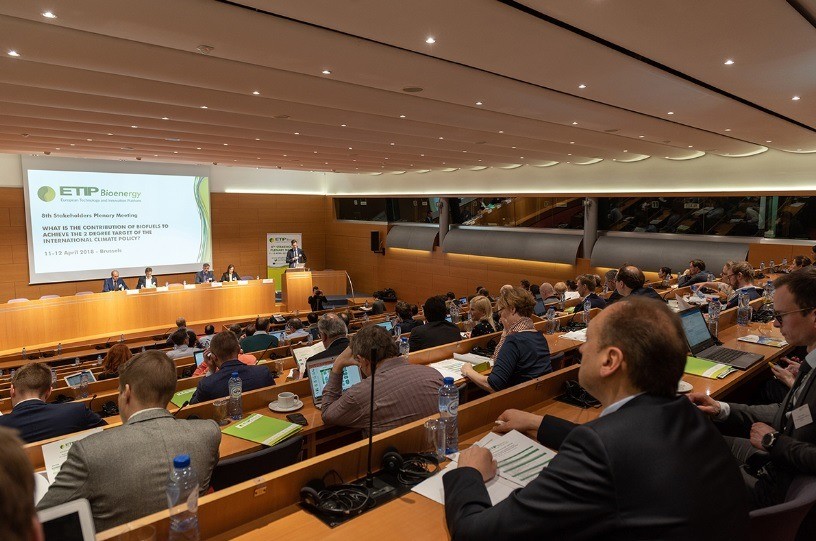
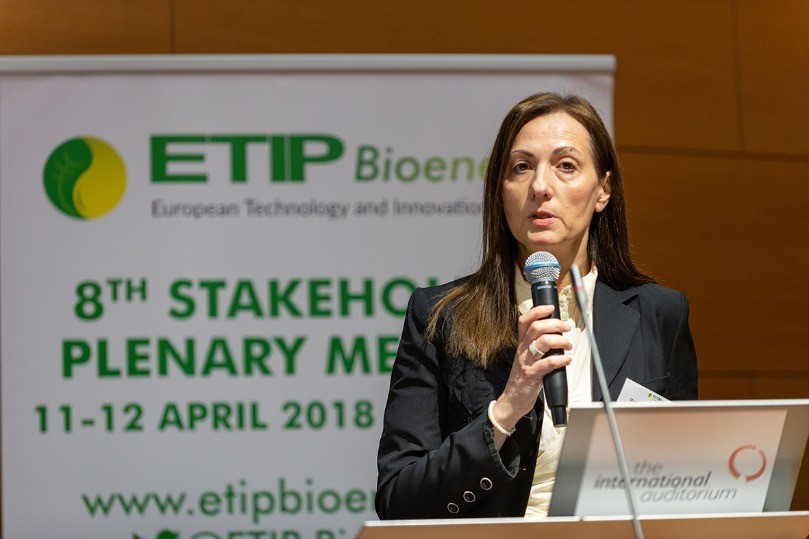
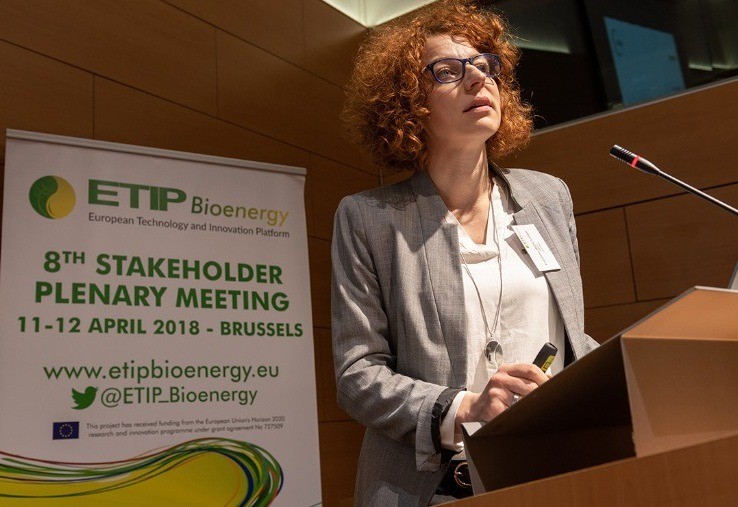
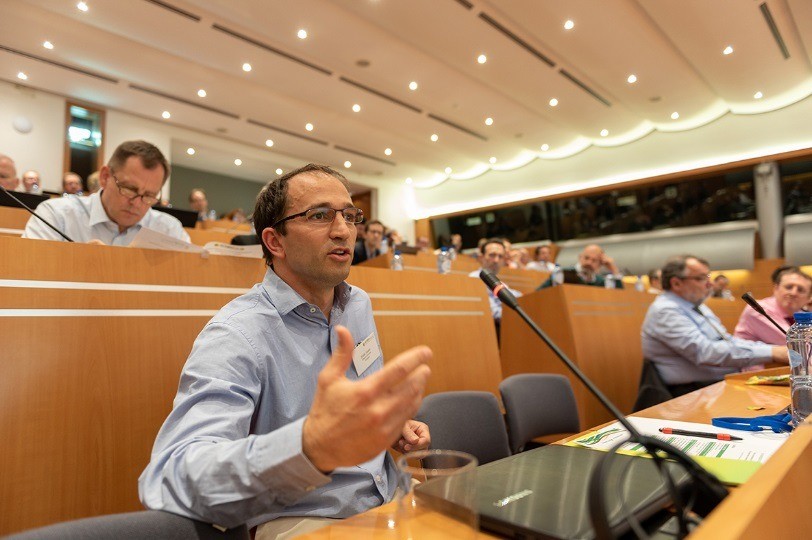
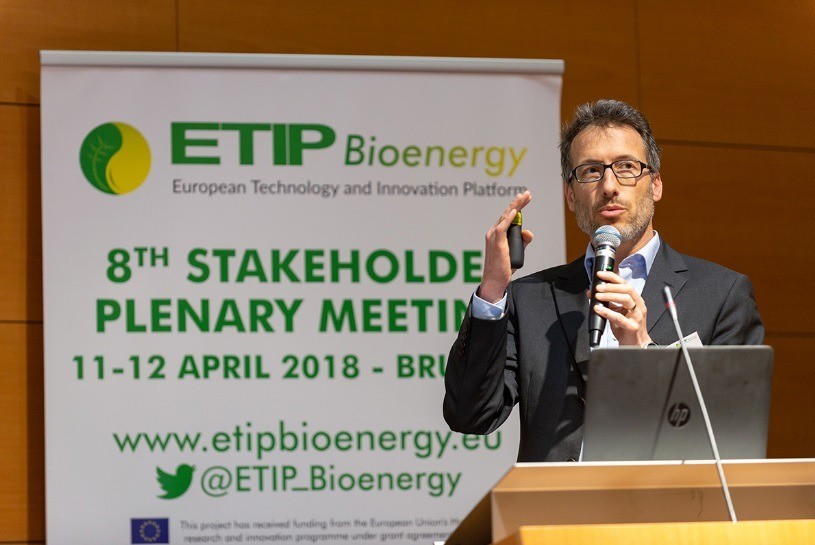
.jpg)





0 COMMENTS
Leave A Comment
Your Email Address wiil not be Published. Required Field Are marked*